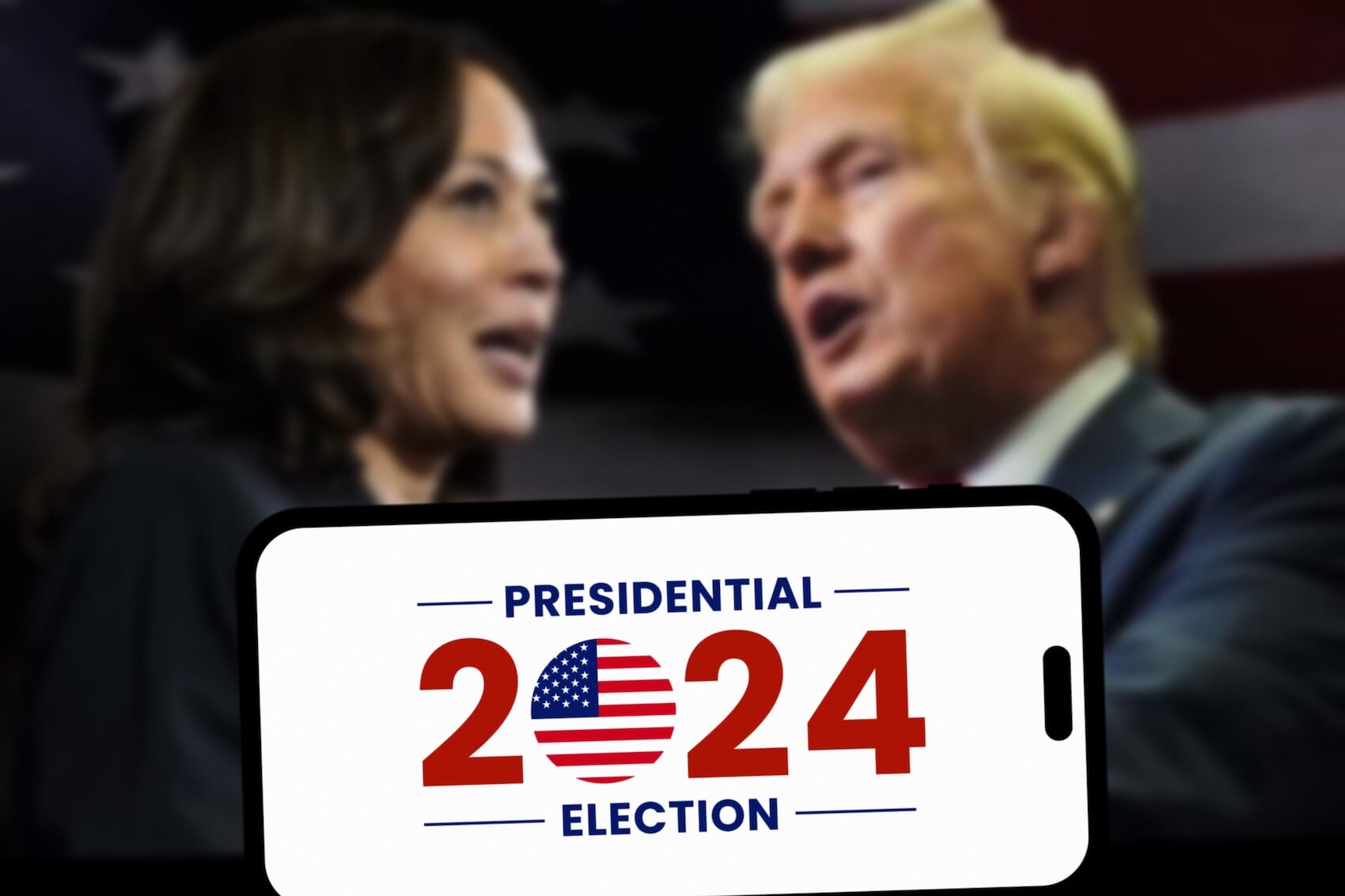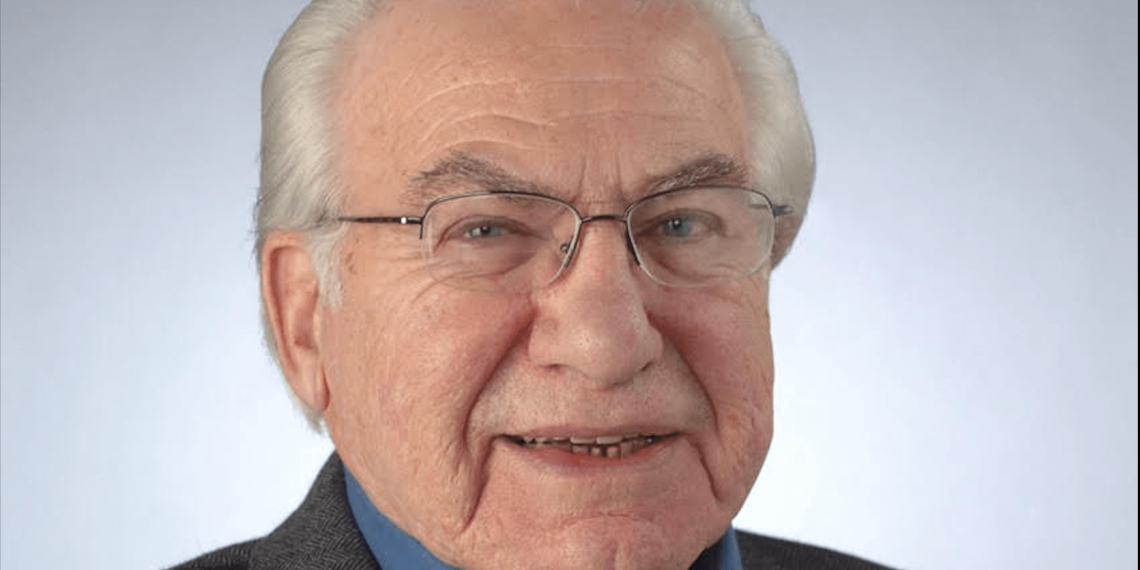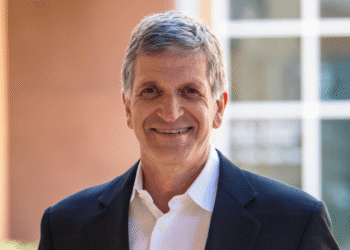Professor Louis Kriesberg argues that right-wing populism, as represented by Donald Trump in the US, is ultimately doomed to failure, even if Trump were to be re-elected. He draws parallels to past episodes in American history, such as McCarthyism in the 1950s and the Ku Klux Klan’s influence in the 1920s, noting that while these movements caused significant harm, they eventually faded into obscurity as the country moved toward more inclusive and democratic norms. Although Professor Kriesberg expresses deep concern about the potential damage, he remains optimistic about the resilience of democratic institutions and the strength of resistance against authoritarian tendencies. He believes that the majority of Americans do not support Trump’s divisive rhetoric and that the country will ultimately reject right-wing populism in favor of more traditional, constructive political engagement.
Interview by Selcuk Gultasli
Giving a compelling interview to the European Center for Populism Studies (ECPS), veteran scholar Dr. Louis Kriesberg, Professor Emeritus of Sociology, Maxwell Professor Emeritus of Social Conflict Studies at Syracuse University, delves into the complexities of right-wing populism in the United States (US), particularly in the context of Donald Trump’s political career. Central to the discussion with Professor Kriesberg is the idea that while Trump’s brand of right-wing populism has gained significant traction, it is ultimately doomed to failure. Professor Kriesberg draws parallels to past episodes in American history, such as McCarthyism and the Ku Klux Klan’s influence in the 1920s, to argue that while these movements caused significant harm, they eventually faded into obscurity as the country moved toward more inclusive and democratic norms.
However, the interview also touches on the possible dangers facing American democracy if Trump were to be reelected. Professor Kriesberg expresses deep concern about the potential damage but remains optimistic about the resilience of democratic institutions and the strength of the resistance against authoritarian tendencies. He believes that the majority of Americans do not support Trump’s divisive rhetoric and that the country will ultimately reject right-wing populism in favor of more traditional, constructive political engagement.
The conversation with Professor Kriesberg explores themes from his book Fighting Better, where he analyzes the constructive conflict approach in both international and domestic contexts. As a scholar with extensive experience in conflict resolution, Professor Kriesberg provides a nuanced perspective on how American democracy has been challenged, particularly during and after Trump’s presidency.
By reflecting on the motivations behind his book, Professor Kriesberg notes the increasing polarization and hostility in American politics. His work seeks to apply the principles of conflict resolution—traditionally used in international disputes—to the domestic conflicts tearing at the fabric of American society. He highlights how the progress of various status groups, such as African Americans, women, and LGBTQ people, has led to significant backlash, which right-wing populism has exploited to deepen divisions.
Professor Kriesberg also offers insights into the potential future of American democracy, stressing the importance of addressing the root causes of inequality and fostering greater cooperation across political divides. His analysis provides a hopeful yet realistic outlook on the challenges ahead, emphasizing that while the road may be difficult, constructive conflict resolution offers a path forward.
Here is the transcription of the interview with Professor Louis Kriesberg with some edits.
Conflict Resolution Could Also Be Relevant to Domestic Conflicts
What reasons compelled you to write the book ‘Fighting Better’ and what is the main purpose of this book? Why did you choose the title of ‘Fighting Better’ for your book?
Professor Louis Kriesberg: Most of my research has focused on international conflicts, particularly the Cold War and the Israeli-Palestinian conflict. However, over time, I developed an interest in the transformations occurring within my own country since the end of World War II. I was struck by the increasing troubles in our society, particularly the growing political divisions, the nastiness in politics, and the threats of violence. This led me to believe that the development of conflict resolution, which I had contributed to for many years, could also be relevant to domestic conflicts, not just international ones.
In the preface, I mention that I had the audacity to undertake this analysis because I had lived through these changes and possessed the necessary skills. I felt I could contribute to understanding how our society’s troubles became so severe and how a constructive conflict approach could provide solutions.
I was driven to write this book because I wanted it to reach a broad audience—not just my academic colleagues or university courses, but the public at large. The title Fighting Better seemed fitting as it encapsulates the essence of what I aimed to achieve: a proper statement on how we can address conflicts more constructively.
Can you please explain to our readers how conflicts can be waged constructively by analyzing American conflicts that did or did not work out well for the contenders and the country as a whole?
Professor Louis Kriesberg: Certainly. Let me outline some basic principles of constructive conflict. I’ve discussed these ideas extensively in another book, Constructive Conflicts, co-authored with Bruce Dayton. The first edition was published in 1986, but the concepts remain fundamental.
First of all, many conflicts are managed through established institutions. All societies have rules for dealing with conflict—through legal systems, politics, and other institutionalized methods. Conflicts handled within these frameworks tend to be more constructive, provided the rules are fair and widely accepted.
Secondly, coercion isn’t the only way to influence conflict outcomes. There are three major inducements: persuasion, promises of benefits, and coercion. In nearly every conflict, one side tries to convince others of the rightness of their cause. Sometimes, offering benefits or incentives can also play a role in resolving conflicts. This means that not all conflicts rely solely on coercion, whether violent or nonviolent.
Thirdly, conflicts are often interwoven. We might frame them as isolated, but they are connected to broader and smaller issues. This interconnectedness offers opportunities to find better solutions, rather than seeing conflicts as fixed, zero-sum battles.
Fourthly, often, conflicts are framed as a battle between good and bad, but in constructive conflict resolution, it’s crucial to genuinely understand the other side—their needs, perspectives, and misunderstandings. This can lead to more effective conflict resolution.
Finally, conflicts evolve as contexts change, and different factions within each side may shift their positions. This fluidity can make finding better outcomes more possible or less likely, depending on how the situation is handled.
These are some of the basic ideas behind constructive conflict. We’ve explored these concepts further in other publications as well.
The Republican Party Has Pursued Policies That Exacerbated Inequality
In your analysis of class-related conflicts, how did you observe the relationship between economic policies and the rise of class inequality from 1970 to 1992? What were the key factors contributing to the "hyper class inequality" that you describe as occurring between 1993 and 2022? How do conflicts across different dimensions of inequality (class, status, and power) interact and influence each other according to your findings?
Professor Louis Kriesberg: There has been remarkable progress in achieving greater equality for certain status groups in America, particularly African Americans, since the end of World War II. After the war, there were raised expectations among African Americans that they deserved much greater equality than they had experienced under the oppressive conditions of slavery and segregation. Even President Harry Truman recognized this, believing in the integration of African Americans into the army. However, the South’s conditions were dire, with many whites attempting to maintain the status quo and keep African Americans "in their place." This led to increased resistance to Jim Crow laws, and the civil rights movement began to take shape, with leadership focused on nonviolent actions as a means to achieve change.
The situation in Birmingham, Alabama, was particularly troubling, with issues like the denial of equal seating on buses. This became a well-defined target for change, with African Americans demanding the right to sit anywhere on the buses. Leaders like Martin Luther King Jr., who was thoughtful and strategic, worked closely with other community leaders, particularly within the church, to build a movement that was carefully planned and constructively waged.
Despite the constructive approach, the white leadership in many Southern cities responded with destructive tactics, including repression, violence, and arrests. These actions, however, only garnered more support for the African American cause. The federal government, under President Lyndon B. Johnson, who was sympathetic to the movement, eventually intervened. The movement’s success inspired other groups of African Americans to employ nonviolent techniques in their own struggles for equality.
I was influenced by the traditional sociological framework that emphasizes the major dimensions of society: class, status, and power. The ideas of class inequality, particularly as discussed by Marx, provided a convenient way to organize my analysis. Class inequality was largely addressed through legislation rather than direct action. Initially, under Democratic leadership, particularly Lyndon B. Johnson, there were efforts to improve welfare payments for low-income people, including African Americans. This contributed to some increase in equality in the years following World War II, despite the negative impact of the Vietnam War.
However, when Ronald Reagan became President and leader of the Republican Party, there was a clear shift. Reagan cut back on welfare payments, limited worker union activities, and reduced taxes for the wealthy and corporations. These actions marked the beginning of a significant increase in class inequality, primarily driven by legislation and the idea that giving more money to the rich would benefit everyone through a "trickle-down" or supply-side economy. This theory, however, was widely discredited by economists who pointed out that increased demand from workers with higher wages is what truly drives economic growth, not the other way around. Despite this, the Republican Party continued to pursue policies that exacerbated inequality whenever they were in power.
While Inequality May Benefit Some in the Short Term, It Is Ultimately Destructive
In the introduction of the book, you refer to main written documents that created US like the constitution and the American Declaration of Independence which defends freedom, justice and life for all Americans however African Americans until the end of 1960s did not enjoy their full civic rights. What made Americans so indifferent to the plight of African Americans for so long?
Professor Louis Kriesberg: I wouldn’t necessarily call it indifference. Some people, particularly the white leadership in the South during the Jim Crow era, believed they were benefiting from the system. They thought they could maintain cheaper labor by paying African Americans less and denying them basic rights. They saw this as advantageous for their own interests. However, in the long run, it was a mistake, even for those who thought they were benefiting. The South’s economy improved after the end of Jim Crow, proving that equality was beneficial for everyone. One of the key ideas of constructive conflict is to analyze the motivations of different groups and recognize when those motivations are shortsighted or harmful.
My emphasis on the founding documents, which pledge freedom and equality for all, was to highlight that these principles are more constructive and beneficial for society as a whole. It’s a normative judgment, but I believe that working towards equality and justice aligns with the core values of the United States. While inequality may benefit some in the short term, it is ultimately destructive to the nation’s founding ideals and to humanity as a whole.
In the book, you refer to events in the US since the presidency of Donald Trump and conclude that widespread fears have been common about the survival of American democracy and underline in the concluding chapter that: “In recent years democracy have deteriorated significantly.” Do you agree with those pundits who argue that American democracy is dying? Based on your study, what are the greatest threats to American democracy, and what constructive approaches could mitigate these dangers?
Professor Louis Kriesberg: I wouldn’t necessarily use the word "dying." I don’t think American democracy is doomed, but it has certainly been damaged. One peculiar aspect of this situation is that the progress made by various status groups—African Americans, women, LGBTQ people—through their actions, demands, and some legislative changes has led to significant social advances. However, this progress has sparked backlash. Some people resisted these changes, feeling that they were undesirable or even disruptive, leading to efforts to roll back these gains and return to more oppressive inequalities.
The Republican Party, in particular, became increasingly uncooperative with Democrats. Even attempts by leaders like Bill Clinton to bridge the divide were met with rigidity from Republicans, who increasingly embraced obvious falsehoods, misogyny, and racism, often appealing to white Christian identity. This strategy garnered some support, especially as it played into the anxieties of those who felt left behind by economic changes.
As income inequality grew, many working-class people experienced relative deprivation, with stagnating wages and a declining sense of economic security. This, combined with status anxieties—particularly among some men who felt their social standing was threatened—created fertile ground for the Republican Party to exploit cultural grievances while distracting from the real issue: the growing class inequality.
In this context, the interplay between status gains and the hyper-inequality in income and wealth has been particularly dangerous. The decreasing intergenerational mobility has made it harder for future generations to benefit from economic gains, further exacerbating tensions. To address these dangers, it’s crucial to focus on policies that reduce inequality, enhance social mobility, and foster greater cooperation across political divides.
Trump’s Right-Wing Populist Appeal Will Not Endure in the Long Term

With Donald Trump as former president and now president hopeful, right-wing populism has turned out to be a permanent feature of American democracy. Do you think right-wing populism will be here to stay or is it a phenomenon that will be forgotten after Trump ends his political life?
Professor Louis Kriesberg: I don’t think it will be forgotten, but I believe the falsehoods and extremism in Trump’s rejection of American democratic principles will ultimately lead to its failure. I think we’ll see a restoration of more traditional American politics. Historically, we’ve seen similar episodes. McCarthyism was a dreadful chapter, but today, no one wants to be associated with it—it’s a term of shame. Similarly, in the 1920s, the Ku Klux Klan had significant political influence in many areas, which was profoundly undemocratic. However, that period is now largely forgotten. I think right-wing populism, as represented by Trump, is also doomed to failure. Even if he were elected again, I don’t believe his appeal will endure in the long term.
In the last chapter of the book, you observe that Trump’s presidency has been and remain largely contrary to the constructive conflict approach. He has failed to achieve many of his stated goals and the results of what he has accomplished have worsened progress toward more class, status and political power equality. What will happen to American democracy if Trump is reelected on November 5?
Professor Louis Kriesberg: It would be terrible. However, I believe there will be significant resistance, and he won’t be able to impose his will entirely. During his first term, there was considerable pushback, and while he may have learned from that experience, I don’t think he will be more effective in overcoming the resistance. The strength of this resistance is well-grounded. Most people in this country are not staunch supporters of Trump—he has never had more than around 44% approval. As he tries to implement his agenda, I believe the resistance will only grow stronger.
After watching the debate of US presidential candidates on Tuesday night, who do you think will be the next US President?
Professor Louis Kriesberg: I’m not sure how much the debate will influence the outcome. There’s no question that Kamala Harris was very skillful in baiting Trump to be his typical self—going off on tangents, lying, distorting, blustering, and at times, appearing bewildered and incoherent. This might play a role in the electoral college outcome, but it’s not necessarily decisive.
I believe Harris did a brilliant job of proving that she would be an effective, powerful, and good President, while Trump showed none of those qualities. However, some people may need to witness even more failures before they reconsider their support. Overall, I think the American people, for the most part, are sensible, despite occasional evidence to the contrary.


